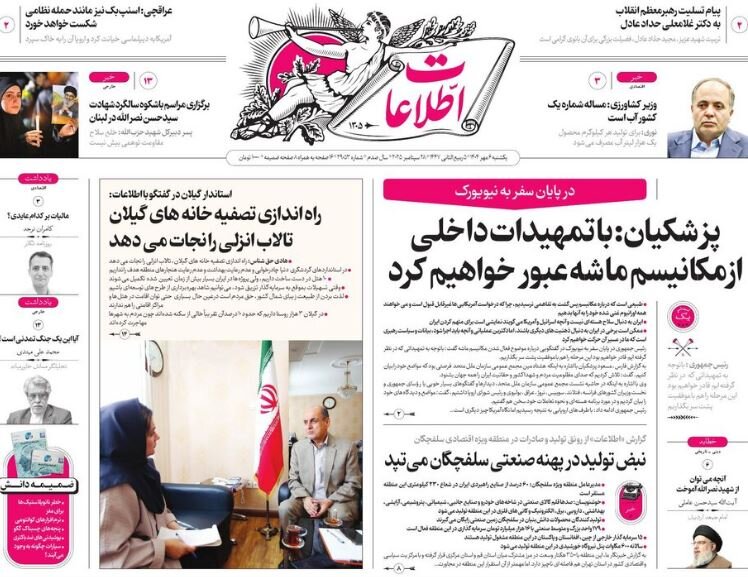Iran's new black gold customer

TEHRAN - In an article, Ettelaat discussed India as a new customer of Iran's black gold although the UN Security Council failed to vote for a resolution to suspend sanctions against Iran permanently.
It wrote: Despite the atmosphere created after Europe activated the snapback mechanism, India has resumed importing crude oil from Iran after years of suspension and imported a shipment of crude oil worth $111 million from Iran. India's move can be interpreted as a sign of the gradual distance of important countries from U.S. sanctions policies. New Delhi has even offered the U.S. the possibility of buying oil from Iran and Venezuela in exchange for reducing oil purchases from Russia. This shows that Iran has been able to maintain its maneuvering space against international pressures through active diplomacy and diversifying its trading partners. It seems that the main consequence of the current snapback activation has more psychological aspects and focuses on Iran's domestic markets than on creating a serious disruption in oil export channels. Relative stability in energy exports allows for longer-term planning for other sectors of the economy.
Zero hours of the JCPOA
In an analysis, Shargh examined the future of Iran's nuclear file after the UN Security Council refused the draft resolution proposed by China and Russia to delay the snapback sanctions triggered by the European troika, writing: With the failure of the resolution proposed by Russia and China in the UN Security Council, Iran's nuclear negotiations have entered a new and tense phase. With the activation of the snapback, the troika will practically be sidelined from future processes surrounding the nuclear file. Evidence showed that the troika has fulfilled its duty of destroying diplomacy and no longer serves a meaningful role for Washington, and now they have lost their importance for Tehran. Therefore, the decision-making circle will be limited to Tehran, Washington, Moscow, and Beijing. By eliminating the troika, a new space will be formed for possible negotiations in the future. However, experts warn that activating the snapback mechanism could overshadow diplomacy for a long time and make a return to the negotiating table more complicated.
Arman-e-Melli: Consequences of snapback sanctions
Arman-e-Melli spoke with Yousef Molaei, a professor of international law at the University of Tehran, to examine the process of activating the snapback sanctions and its political and economic consequences. He said: Naturally, the security risks of activating the snapback are greater than the economic consequences. However, the economic consequences can also be challenging, and other conditions may arise as the pressures on people's lives intensify. Given the 12-day war, it is likely that the United States and Israel will use this situation to their advantage to the detriment of Iran in line with the global consensus against Iran, although it will not be an easy task. In any case, when Iran is introduced as a threat to international peace and security based on the snapback mechanism, the conditions for international pressure against Iran will increase. Another point is that the economic conditions of society will also be affected by this event. This issue can also create new challenges for the country in the long run.
Hamshahri: Unity against snapback
In a commentary, Hamshahri wrote about the European betrayal, saying: After killing the JCPOA, the European troika committed the last possible betrayal by vetoing the resolution proposed by China and Russia to delay the snapback mechanism “to give room for diplomacy”. The important thing is that Europe is losing its last lever. What is important is the origin of the troika's hostile decision on behalf of the United States, while Mr. Pezeshkian's government did its best to open the way for interaction. It is this one-sided interaction of the Iranian side that has encouraged the shameless Western side to become more arrogant instead of respectfully interacting. They believe that their hostile actions against Iran have no cost, and therefore, they can continue their wickedness in the form of harassing operations. This Western miscalculation must be challenged. If we are united and coherent on the domestic front, and if the government, the Supreme National Security Council, and the judicial and intelligence bodies try to control the mental conditions of the snapback and deal with the proxy network with severity, it will quickly become clear that this Western mechanism is not credible and Iran can overcome the threat posed by the West powerfully.
Leave a Comment